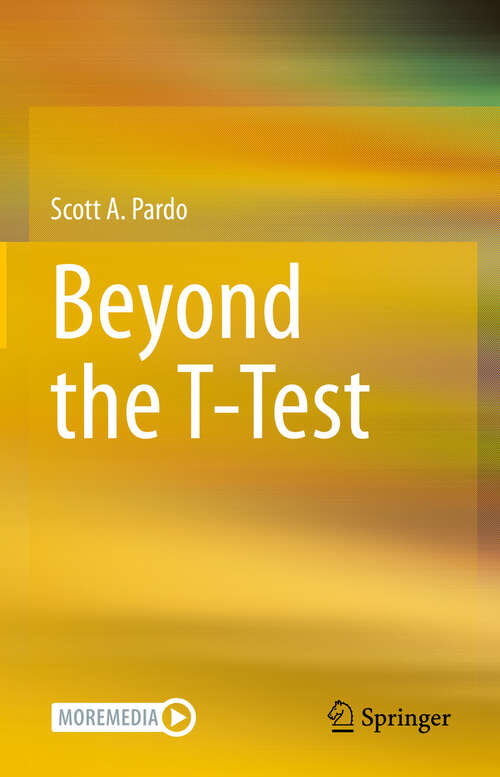Beyond the T-Test
By:
Sign Up Now!
Already a Member? Log In
You must be logged into Bookshare to access this title.
Learn about membership options,
or view our freely available titles.
- Synopsis
- This book was inspired by years of questions asked by non-statistical professionals, from social scientists, public policy analysts, regulatory affairs specialists, engineers, and physical scientists. It provides them with both an intuitive explanation of many common statistical methods and enough mathematical background to help them justify those methods to others, such as regulatory agencies. It provides an introduction to commonly used methods that are not covered in a first elementary statistics course, such as partial least squares, MCMC, and neural networks. It also provides R code for making all the computations described in the text. As a textbook, it could be used as a second course in statistics for non-statisticians, in fields such as social sciences, public policy, engineering, chemistry, and physics. Many first-year graduate students have had an elementary statistics course, but were not exposed to enough of the mathematics to justify the application of those methods. Furthermore, they often encounter methods and concepts not touched upon in their first statistics course. This book provides the tools required to give a deeper understanding of statistical methods without being all about theorems and proofs.
- Copyright:
- 2025
Book Details
- Book Quality:
- Publisher Quality
- ISBN-13:
- 9783031844799
- Related ISBNs:
- 9783031844782
- Publisher:
- Springer Nature Switzerland
- Date of Addition:
- 07/06/25
- Copyrighted By:
- The Editor
- Adult content:
- No
- Language:
- English
- Has Image Descriptions:
- No
- Categories:
- Nonfiction, Computers and Internet, Mathematics and Statistics, Sociology
- Submitted By:
- Bookshare Staff
- Usage Restrictions:
- This is a copyrighted book.
Reviews
Other Books
- by Scott A. Pardo
- in Nonfiction
- in Computers and Internet
- in Mathematics and Statistics
- in Sociology
